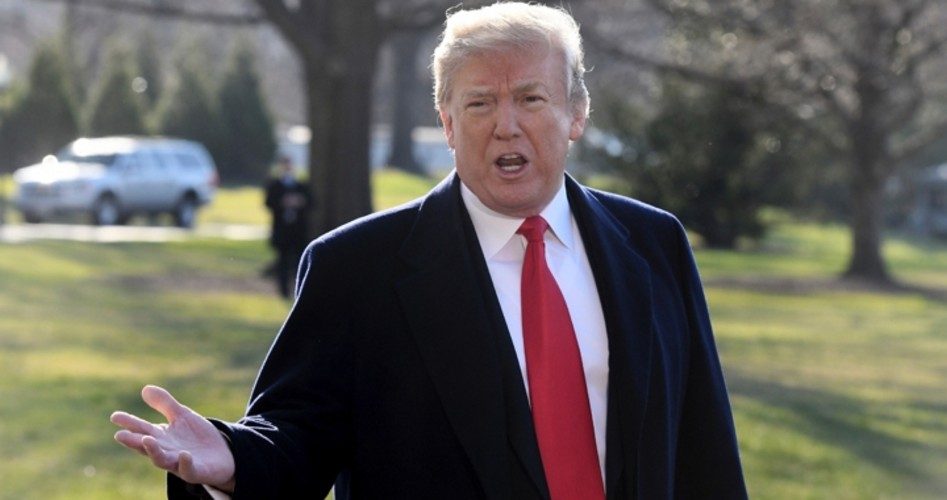
The vacuum left by Gary Cohn’s departure last Tuesday will be filled shortly, either by Peter Navarro or by Larry Kudlow. Reuters reported that these are the president’s “top two candidates” to replace Cohn as chief economic advisor.
Navarro, as The New American reported, led the White House team that persuaded the president to keep America first by imposing tariffs to protect what’s left of the country’s vital industrial base. Kudlow, the Democrat-turned-Republican with a history of cocaine abuse (a $100,000-a-month habit until he successfully exited rehab in the 1990s) and supporting left-wing causes and candidates in his younger days, was grieved to learn of Cohn’s departure. As The New American reported,
There’s Lawrence Kudlow, the so-called conservative commentator who changed political party affiliations from Democrat to Republican to, some say, make himself more acceptable in polite company. But history records that while at Yale he was a member of the left-wing Students for a Democratic Society (SDS) and attended Princeton University long enough to absorb global politics and Keynesian economics.
The mainstream media repeatedly refers to Kudlow as a “conservative” economist, pointing to his days in the Reagan administration, working in the president’s Office of Management and Budget. They refer to his days of working with another “conservative” economist, Jim Cramer, during their stint as partners on Kudlow & Cramer at CNBC from 2002 to 2005. Kudlow now hosts his own show, The Kudlow Report, for that network.
A perfect example of how “flexible” Kudlow is on policy appeared last week when he criticized Trump’s tariffs on aluminum and steel imports as being “a blunt instrument” that could cost consumers and potentially start a trade war. He insisted, “Across-the-board tariffs like [these] damage the users of the commodity. What are you going to do about [imported] cars? All manner of transportation, buses, trucks, SUVs? The energy business. Airplanes. They all use steel.”
But then Kudlow backed off, saying that tariffs do have a purpose: “I would have started with China. Go after China. Canada is not our enemy.”
Why China? Had Kudlow been listening to Pat Buchanan, a syndicated columnist who also spent time in the Reagan administration? Buchanan almost got it right when he wrote: “If we are to turn our $800 billion trade deficit in goods into an $800 billion surplus, and stop the looting of America’s industrial base and the gutting of our cities and towns, sacrifices will have to be made. But if we are not up to it, we will lose our independence, as the countries of the EU [the European Union] have lost theirs.”
Most “free trade” advocates, such as Kudlow, focus only on the economics and not the politics. That $800 billion trade deficit reflects the threat China is to the national security and sovereignty of the United States. It has nothing to do with free trade. It has everything to do with the U.S. consumers funding China’s attack on America’s industrial base. Those aluminum and steel companies, those car manufacturers, the energy industry, those airplane manufacturers? They aren’t competing with Chinese companies. They are competing with the Communist Chinese government, which is using American dollars to emasculate America’s industrial base.
This is the message that Kudlow fails to pass along to his listeners, but it is the message that Peter Navarro has successfully presented to President Trump: There’s a war going on for America’s survival, but almost no one knows it.
Navarro authored Death by China: Confronting the Dragon — A Global Call to Action in 2011, in which he presented his case for that unseen and unknown war so persuasively that even the mainstream media gave it reluctant acknowledgement. The New York Times, that champion and primary voice in support of globalism, said Navarro’s “message … certainly warrants examination and discussion.” The Los Angeles Times said Navarro presented an “important political argument” that China was at war with the United States through so-called free trade.
The war is being waged by China by offering industrial commodities such as aluminum and steel at such low prices that American companies cannot compete and consequently leave the field. China’s war also involves the stealing of American technology either directly or by requiring the giving up of company patents and secrets to the Chinese government in exchange for access to the huge Chinese market.
That’s why the president blocked a planned takeover of chipmaker Qualcomm by Singapore-based Broadcom. Trump citied “credible evidence” that the deal “threatens to impair the national security of the U.S.” How? By allowing the Communist Chinese government (even though Broadcom is based in Singapore) access to American technology, which it would most certainly use in its war against America.
Navarro has it right. Kudlow is a waffle. With his heavy political and personal baggage, Kudlow should be shown the door. The position vacated by Cohn as Trump’s chief economic advisor should be filled by Navarro, who understands the present economic and political reality much more clearly than does Kudlow.
Photo: AP Images
An Ivy League graduate and former investment advisor, Bob is a regular contributor to The New American magazine and blogs frequently at LightFromTheRight.com, primarily on economics and politics. He can be reached at [email protected].
Related article:
Globalist Trump Advisor Gone, Will Americanist Take His Place?


